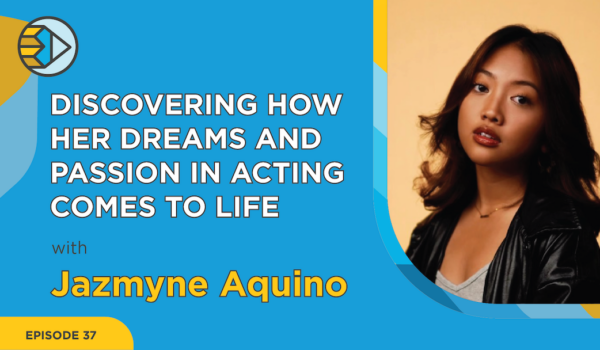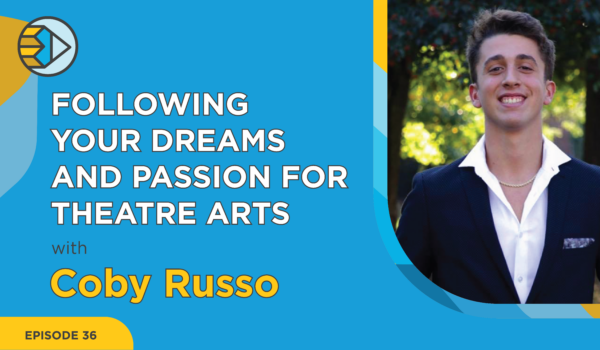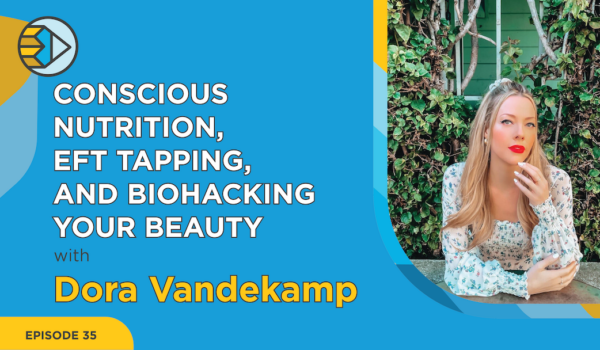
EP 20: The Importance Of Critical Thinking In Academia & How To Incorporate
Welcome to Episode 20 of the Homework Help Show! Have you ever wondered what your professors mean when they ask you to think critically? How do you learn the critical skills they are asking you to use? This week our Host and Top Writer Cath Anne discussed the importance of critical thinking in academia and gives you a series of skills you can incorporate into your learning right away!
Looking for study tips, help with essay writing, or advice on how to be a better student? Welcome to The Homework Help Show, a weekly show where we teach, assist, and offer valuable insights for student life. From study hacks to writing tips, discussions about student mental health to step-by-step guides on academic writing and how to write a resume, we’ve got you covered. Want your questions answered? Write them below or join the conversation on social media using the hashtag #askHHG
TRANSCRIPT:
Cath Anne: [00:00:06] What’s up guys? I’m Cath Anne and welcome to Episode 20 of “The Homework Help Show”.
Cath Anne: [00:00:13] I’m really pumped because we have changed our format up a little bit. We were doing live streams quite consistently, but now we are going to be doing a YouTube video a week and a quick Q and A on Instagram Live and Facebook Live, if you guys have any questions. So I’m really excited about this new format. If you’re unfamiliar with this show every week on “The Homework Help Show” we provide you with valuable content for your academic life.
Cath Anne: [00:00:39] This week we’re going to discuss how to incorporate critical thinking skills into your work. Have you ever heard the phrase critical thinking? I’m sure you have. If you are in university this is definitely something that gets thrown around regularly. What does it mean to you? For some people it might mean something quite negative. The word critical evokes a negative connotation. It might suggest that you have to pick things apart or deconstruct things or be really judgmental. In a way it does.
Cath Anne: [00:01:14] However thinking about things critically can also help you to learn and it actually means a lot more than just being a general grump. Critical thinking is a skill that we engage in everyday. It is basically how we make a decision. We are essentially using critical thinking, every time we decide to make decision. It makes sense that this is something that we can apply to our academic career as well.
Cath Anne: [00:01:43] However, in University and College critical thinking definitely has a broader meaning. Be critical means making informed, educational judgments about social issues, literature, math, and other topics that we talk about often in university. It can also mean distinguishing between facts and opinion. It also helps us to determine whether a theory is valid and how to actually apply that theory in context.
Cath Anne: [00:02:17] When we make academic judgments they have to be grounded in research. As you probably know all of your profs are very consistently stringent on whether you are using appropriate academic resources or not. So critical thinking skills allow us to take that information to break it down or deconstruct it and to put it into a really well written essay or to apply it in a test or an exam. The benefit of critical thinking skills is that they allow us to consider things from all sides. So when we access all of this information it might feel a little bit overwhelming but it’s actually great to draw on different perspectives and different ways of knowing and different types of research in order to inform your topic.
Cath Anne: [00:03:12] Critical thinking is a necessary component of academia because it is through the critical thinking process that information is actually developed and that knowledge is contributed to a particular field. So for example, when people are doing research they are looking at past research that has been done on a topic. They’re taking all of the information they’re basically doing a literature review something that you might be familiar with. They’re going through and they’re figuring out where the gaps in this literature and what questions can be answered in order to create new research and to contribute to the field. As a critically thinking student this is something that you are learning.
Cath Anne: [00:03:58] It is important to incorporate this process into your reading, your notetaking, your essay writing, and your presentation. If you are in a professional field such as social work, nursing, or engineering. These are skills that can also apply to your future practice as you are going through school as well.
Cath Anne: [00:04:20] So critical thinking. The cool thing about it is that it doesn’t only apply to academia. It can also help us to navigate our daily lives as well. When we enhance our critical thinking skills if we can improve our decision-making processes and make stronger decisions based on accounting for all of the information that we take in. If we enhance our critical thinking skills, we can improve our decision-making processes and make stronger decisions based on accounting for all of the information. Remember, most of our everyday thinking are uncritical. We generally go through the days without thinking about every step, without deconstructing how we act, without thinking about societal issues, or you know gender roles or any of those topics that come up in academia. However, there is a time in a place when we can use critical thinking in our daily lives and where it can actually contribute to social change and changes in our own lives.
Cath Anne: [00:05:30] Today we’re going to talk about how to use critical thinking in academia and how we actually learn some of these critical thinking skills and apply them to our life as a student and to our academic work. So you might be familiar with when profs give you an assignment. Perhaps your first assignment is quite small, it might be one or two pages and they ask you something pretty basic. The next assignment might build on that and then the third assignment is the final exam. That final piece is where you take all of your assignments and put them all together. That is actually called the scaffolding technique. Your prof is trying to teach you to develop critical thinking skills. It becomes a built in mechanism in academia and in the university and in college. However there are different ways of doing it and different professors and instructors will do it different ways.
Cath Anne: [00:06:35] It’s also really great to be working on your critical thinking skills and being aware of critical thinking skills, as a student so that you can have a one up on your academic work.
Cath Anne: [00:06:46] Let’s discuss one of the first tips that you can use to enhance your critical thinking skills in academia. Ask basic questions. What I mean by that is that is, as we know our social world is really complex and there is tons of information to take in. As students when we’re going through and sifting through research and literature it can often be overwhelming and seem very complicated and just be a little bit over our heads. However we can begin simply by asking simple questions. When in answer to a question becomes very complex we can actually lose the meaning of it. So when you’re starting with an assignment it can be great just to be simple.
Cath Anne: [00:07:32] Take the content that you know and work with that. Ask some of the following questions. What do you already know? If you are in an English class, maybe you’ve taken an English class. Ask what you already know about the topic. Draw on your existing knowledge and information. You will be surprised how much information you already have. Start by creating an outline and answer: what do you already know about this topic? Write it down from there. Ask yourself how do you know that? Maybe you think about some references that you might have had in your first year English class or when it comes to social work, as that’s my background. I remember there were always some specific papers that I consistently referenced throughout my degree because they really stood out to me. What are some references that you can draw on from the past that you’re really familiar with? Can you incorporate them into this work? You might not be able to do this but in this case you can also draw on the existing literature.
Cath Anne: [00:08:33] So if you do have some information about a topic go ahead and do a little bit of research a little bit of digging and see why you actually know. If there is literature to back up what you already know then you’re going to ask yourself: what are you trying to prove/disprove/demonstrate/critique? This process would actually be the beginning process of developing your thesis statement and framing out your assignment. Then you want to ask what are you overlooking. So are there any additional information that you should add to your outline?
Cath Anne: [00:09:10] This can be good in the process of getting you to think a little bit outside the box. Getting you to think critically about the literature and helping you to engage with the literature rather than being overwhelmed. You actually do have some knowledge to contribute and this will begin your process of critical thinking. You can use this technique when it comes to studying as well. It can actually help to solidify some information in your brain when you’re trying to memorize things. This is actually a really good process for either writing a paper or studying. If you have a little bit more time for that.
Cath Anne: [00:09:48] As I mentioned definitely begin this process by doing an outline. This might even be a pre-outline. Just answer these basic questions and this will help you to write your paper a lot more quickly and a lot more fluidly. Engaging in a critical thinking process does not have to be complex even though the word critical can make it feel that it might be a little complex. You definitely don’t have to make him overly complicated. Ask these simple questions and start where you are and then it should all flow from there.
Cath Anne: [00:10:30] A second tip to developing your critical thinking skills is to question your basic assumptions. Particularly when you’re writing a paper or thinking through a problem you are going to be coming at it with your own biases and analyses from everyday life. We all have these basic assumptions and that’s okay. But academic quality work must extend beyond our basic assumptions towards analysis and synthesis of information. When we check our own assumptions at the door we can go into analysis with a clear head and go into research with an open mind. This can also extend beyond academia. This can apply to our mental processes as well.
Cath Anne: [00:11:20] We all have ways of making life simpler. We have shortcuts in the way we do things. This is actually called heuristics, which are basically mental shortcuts. These were things that we used to when we were hunter-gatherers. It was really helpful for us to be able to make quick decisions or have shortcuts in terms of thinking. But nowadays our world is a little bit more complex than the hunter gatherer society. So we do need to be aware of those heuristics that we have built in for ourselves. Certainly they can be useful in some situations but they aren’t necessarily useful when you’re writing an academic paper because you might take a short cut in something. Just be aware of these underlying biases. These heuristics are mental shortcuts. Maybe you write them down just so that you understand your own processes a little bit more.
Cath Anne: [00:12:15] Some other tips are to read more, become more educated, and become more informed about how others think. These are three ways that we can be more aware of our own assumptions our own biases and our own mental shortcuts.
Cath Anne: [00:12:39] A third tip to improve your critical thinking skills is to remember to think for yourself. Although you will evidently be drawing on academic literature and information when you do the research and write papers, it is important to remember to think for yourself. While this does not mean incorporating your own opinion or biases into your writing it does mean that you must analyze the situation through a critical lens. So go back and ask. Basic questions as we discussed. What is missing? Is there a gap in the literature? What is this research saying? Does it make sense in in relation to other research that you see on the topic?
Cath Anne: [00:13:21] Think through the literature using your own power of deduction. So although you will be drawing on resources to make your point you want to make sure that you’re using your own critical thinking skills because you’ll be increasing that critical thinking muscle. This will lead to a stronger paper and it will also show the professor that you can do more than regurgitate literature because that is what they’re looking for. They’re looking for you to analyze and grapple with the data. So make sure that you are truly engaging with the literature and thinking through it yourself.
Cath Anne: [00:13:55] So finally I wanted to give you a five step process. We’ve already talked about this a little bit but this was actually developed by TED ED, TED Talks educational YouTube channel. It can help you to develop your critical thinking skills.
Cath Anne: [00:14:12] The first step in the process is to formulate your question. So in an academic setting this looks like creating your thesis or writing your hypothesis. What is the question that you’re looking at. Often if you’re writing an academic paper, this will already be given to you in the outline provided by the professor. You will also have to enhance it and develop it yourself. Dig into the research. Figure out what there is out there on the topic and really take a few days to get engaged with the research and the literature so that you can develop your own opinion on the topic.
Cath Anne: [00:14:52] Apply the information. So ask yourself what concepts are at work? What assumptions exist? Is your interpretation logically sound?
Cath Anne: [00:15:01] So again this is a process of going back to your own mental biases, your own heuristics. Understanding whether your assessment of the information makes sense in relation to the literature that you’re reviewing. Consider the implications of this information. So what does this research imply in terms of the world? Are they making any suggestions about how to change things? Are they making any suggestions about how this scientific research will apply to human nature? So what does this information mean? Because when you’re considering that it’ll also allow you to develop a stronger critical analysis and understand the information in context.
Cath Anne: [00:15:46] Then fifth you want to explore other points of view. This is absolutely necessary when you are writing an academic paper because you don’t only want to provide one view of a topic or one analysis of some research because you want to have a well-rounded analysis. By presenting and exploring other points of view, you’re also going to have a stronger argument because you’re going to understand what the other person or what the other group of people will say about the topic. You will be able to therefore strengthen your own argument.
Cath Anne: [00:16:29] So, guys that is it for this week. I hope this video was helpful for you. Thank you so much for tuning into “The Homework Help Show”. I’m really excited for our new format and I’m really hoping that you will join us again.
Cath Anne: [00:16:44] As I mentioned on Thursday we’re going to be jumping on live for about 10 minutes on Instagram Live and Facebook Live just for a little Q and A session. We’ll also be jumping on to remind you to check out this YouTube video. So if you are interested in any more of our content we have tons of it out there please visit us on Facebook, Twitter, LinkedIn, Instagram, Google Plus, YouTube, Medium. And we’re also on SoundCloud, Anchor, iTunes Apple podcasts, Google Play Music. If you are more of a listener. All you have to do is search for Homework Help Global and we will be there. Also just a little reminder if you did like this video please SUBSCRIBE below and give us a thumbs up. That would be great and would really help us. So if you have any other questions please leave them in the comments below and I am looking forward to seeing you again.
Cath Anne: [00:17:40] Take care guys.
Share:

